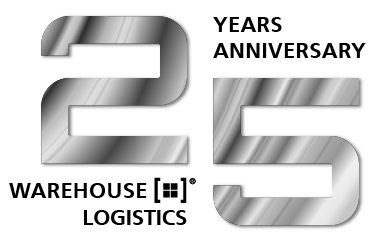News
Warehouse system management for pharmaceutical companies
25.05.2010
It is not hard to imagine a standard warehouse. A myriad of shelves and an abundance of boxes. Only a handful of people actually know where a specific product can be found.
Now, imagine that there are lifesaving cures in the warehouse. One small mistake in distribution or shipping may lead to a real tragedy. That is why large companies cannot operate without state-of-the-art warehouse management solutions.
The pharmaceuticals distribution process is a cycle of complex actions that require highest security standards and constant information sharing. Keeping full control over the system, and having insight into even the smallest components determines the quality and efficiency of warehouse management. This stems from restrictive legal and industry regulations related to comprehensive distribution systems. The drug’s road from its manufacturer to the patient is easy only in theory. It requires solutions recording even smallest movement of goods, accelerating their circulation and increasing the precision of deliveries.
"Legislation requires drug distributors to use state-of-the-art packaging and transportation technologies to eliminate human errors from the logistics processes. Unfortunately, the human factor is in fact the weakest link in the entire process," – says Janusz Budek, CIO at Prosper SA, a large Polish drug distributor.
The maze
Imagine a huge warehouse with a vast amount of pallets with hundreds of boxes each. In the boxes, there are dozens of dozens of small drug packs. The pharmacy network has several thousand locations. To minimize the risk of an error, logistics companies and warehouse operators deploy systems that help them manage the warehouses – the so called WMS (Warehouse Management System). As it turns out, an efficient supply chain depends on an efficient warehouse.
According to experts, in a situation where time is increasingly important, and several minutes of delay have the same importance that once several hours have had, efficient warehouse management is the key to success. In the case of drugs, the matter is even more complicated. The conditions and requirements related to drug storage are even stricter than those applied to food. "Some drugs cannot be stored next to each other, in a low or high temperature, in humidity, etc.," says Marcin Figlarek, Logistics Consultant at Consafe Logistics. According to many companies operating warehouses, a WMS guarantees restrictive storage and shipping control. The system also allows avoiding human errors. "When designing solutions for the pharmaceutical industry, we strongly concentrate on the so called product placement algorithm. Drugs often have very similar packaging, and a bad system may cause the employee to take the wrong box," adds Marcin Figlarek.
With your eyes peeled
It is not hard to imagine the entire healthcare system being paralyzed if all healthcare units would receive the wrong shipment. "With such a large number of deliveries we have to deal with, it is very easy to make a simple, human error. That is why today our safety is protected by state-of-the-art IT solutions," says Budek. Each box, even the smallest one, has a unique SSCC (Serial Shipping Container Code), a recommended solution on the pharmaceutical market. SSCCs are unique worldwide, regardless of how small a specific parcel is, or in how small a warehouse it is stored. Also during transport, there is no need to scan each packaging separately. Only the entire box is scanned. This of course requires precise description of the box and its contents at the very beginning of the entire delivery process.
Compliance with industry requirements
"What differentiates our solutions from our competitors’, is that we can guarantee comprehensive deployment. We are able to cover the entire warehouse, from designing the shelf system, to deploying a complete IT system," says Marcin Figlarek, Consafe Logistics.
For the pharmaceutical market, monitoring the so called usable life end date is a priority. Warehouse personnel has quick access to databases where information on expiry dates for each drug is stored. It is the warehouse’s responsibility to deliver the right batch to the final recipient. "We have had situations when drugs with shorter expiry dates were left on the shelf, while the ones with longer dates were shipped out. Our systems eliminated such errors, and protect companies from any possible damages," comments Marcin Figlarek, Consafe Logistics.
In the experts’ opinion, warehouse management systems have to be deployed by specialized, knowledgeable companies, because only they can ensure all the benefits and potential savings. The risk of a human error is huge. Therefore, companies outside logistics more often deploy WMS solutions, while those who have already done so, enjoy large savings that can be allocated to new investments.
